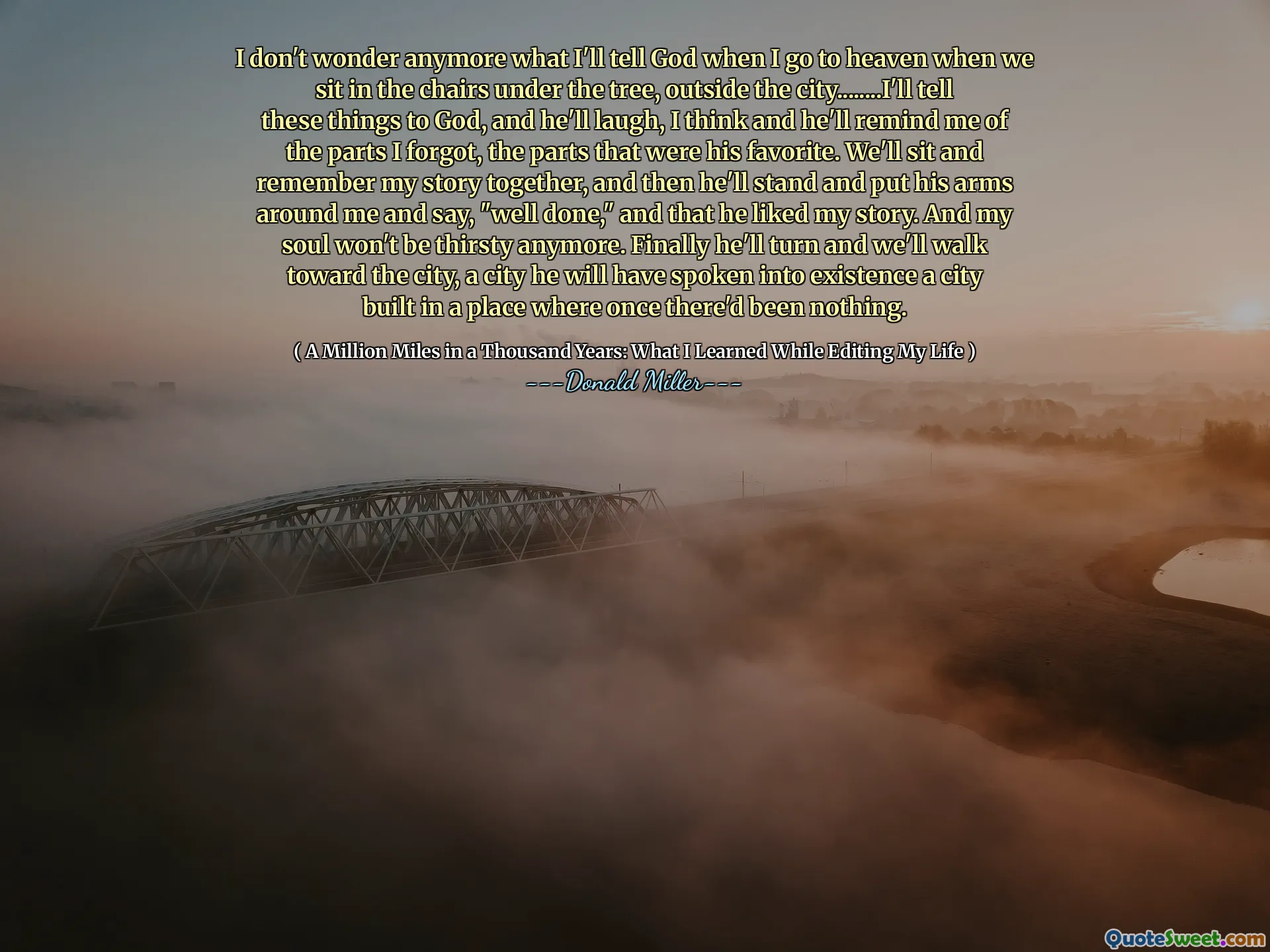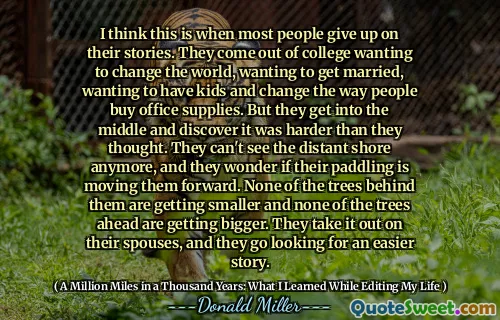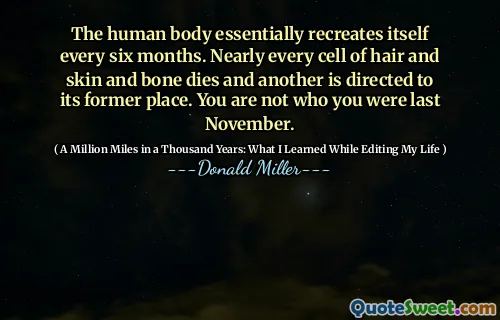
I don't wonder anymore what I'll tell God when I go to heaven when we sit in the chairs under the tree, outside the city........I'll tell these things to God, and he'll laugh, I think and he'll remind me of the parts I forgot, the parts that were his favorite. We'll sit and remember my story together, and then he'll stand and put his arms around me and say, "well done," and that he liked my story. And my soul won't be thirsty anymore. Finally he'll turn and we'll walk toward the city, a city he will have spoken into existence a city built in a place where once there'd been nothing.
In this passage, the author reflects on the conversation he imagines having with God in heaven. He envisions a serene setting where they sit under a tree, sharing stories and memories from his life. He anticipates that God will highlight the special moments he may have overlooked, reinforcing the idea that every experience matters. This intimate exchange portrays a sense of connection and understanding between the author and the divine.
The sentiment culminates in a comforting affirmation from God, who expresses approval of the author's life story. This reassurance leads to a profound sense of fulfillment and contentment, symbolized by the quenching of his soul's thirst. The scene concludes with both of them embarking on a journey toward a newly created city, embodying hope, redemption, and the promise of new beginnings. This imagery evokes feelings of peace and continuity in one’s purpose beyond life.











